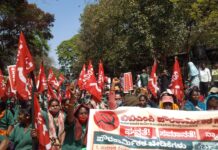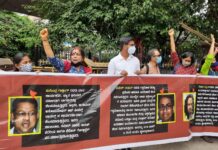The Delhi High Court has held that permitting illegally intercepted messages and audio conversations as evidence would lead to manifest arbitrariness and promote violation of the fundamental rights of citizens.
Justice Chandra Dhari Singh said that as per Section 5(2) of the Telegraph Act, an order for interception can only be issued either on the occurrence of any public emergency or in the interest of public safety, as per the law laid down by the Supreme Court in PUCL.
“…if the directions of the Hon’ble Supreme Court in PUCL (Supra) which are now re-enforced and approved by the Hon’ble Supreme Court in KS Puttaswamy (Supra) as also the mandatory rules in regard to the illegally intercepted messages/audio conversations pursuant to an order having no sanction of law, are permitted, it would lead to manifest arbitrariness and would promote the scant regard to the procedure and fundamental rights of the citizens, and law laid down by the Hon’ble Supreme Court,”.
The observations came as the Court set aside the 10-year-old order of a special CBI Judge framing charges against one Jatinder Pal Singh, under the Prevention of Corruption Act as well as section 120B (punishment for criminal conspiracy) of the Indian Penal Code.
Singh was accused of being a middleman and paying a bribe of ₹2 crore to then chairman of the Medical Council of India (MCI), Ketan Desai, for allowing admission into the 4th Batch of MBBS in a medical college in Patiala ,by bypassing the alleged deficiencies in the process.
The petitioner had approached the Delhi High Court arguing that the telephonic conversations, based on which CBI built its case, were intercepted and recorded illegally and never sent for forensic analysis. The petition said that the CBI had relied on conjectures and surmises in the conversations.
It was argued that there had been no violation of MCI Rules and the alleged bribe of ₹2 crore was the money from sale of a property.
The petition submitted that the chargesheet was filed by the CBI in violation of its manual, as it never received the permission of the CBI Director, necessary for prosecuting a government servant.
The Court was told that that the main accused in the case, Ketan Desai, had already been discharged and as there is no involvement of any public servant in the alleged conspiracy, the prosecution under the PC Act stands void.
The Court has said that as per Rule 419A of the Rules framed under the Telegraph Act, the order of the Home Secretary granting permission to intercept telephonic conversations is to be forwarded to the review committee within seven days of passing the order. However, in this case there was no material on record to establish that any review of the order of the Home Secretary was conducted.
“This Court is of the view that as per Section 5 (2) of the Telegraph Act, an order for interception can be issued on either the occurrence of any public emergency or in the interest of the public safety as per the law laid down by the Supreme Court in the case of PUCL (Supra). After the perusal of the records, this Court is satisfied that in peculiar facts of the instant case, the mandatory requirements laid down by law for placing reliance on such audio conversations, have not been fulfilled. It is an admitted position that Rule 419(A)(17) which provides for destruction of intercepted message also adopt the said directions. The court below while passing the impugned orders has also ignored the settled legal positions and directions of the Supreme Court.”
Justice Singh, therefore, held that tape-records of the intercepted calls are not admissible, since the due procedure for interception and the Rules framed under the Telegraph Act were not followed by the authorities.
The single-judge said that the main basis of the matter was that the bribe had been paid to bypass certain rules of the MCI also does not hold, since there was no such condition in the rules back then as has been alleged by the CBI.
The Court held that the statement of the accused is also inadmissible as it was taken without sanction from the appropriate authority, and since the public servant accused of taking the bribe has already been discharged, the petitioner herein cannot be prosecuted under the PC Act.
“Thus, in an offence alleging conspiracy, where the main conspirator has been discharged and in the absence of evidence implicating the petitioner as a co-conspirator alleged to be a middle-man, there is no point in continuing with the case and keep the entire criminal justice machinery running endlessly especially in light of the fact that the criminal proceedings had been initiated ten years back and has stayed pending ever since,” the Court said.
It, therefore, allowed the petition and set aside the special court’s order.
Senior Advocate Sudhir Nandrajog along with advocates HS Bhullar and Shikar Sharma appeared for the petitioner. The CBI was represented by Special Public Prosecutor (SPP) Rajesh Kumar and advocate Mishika Pandita.





























